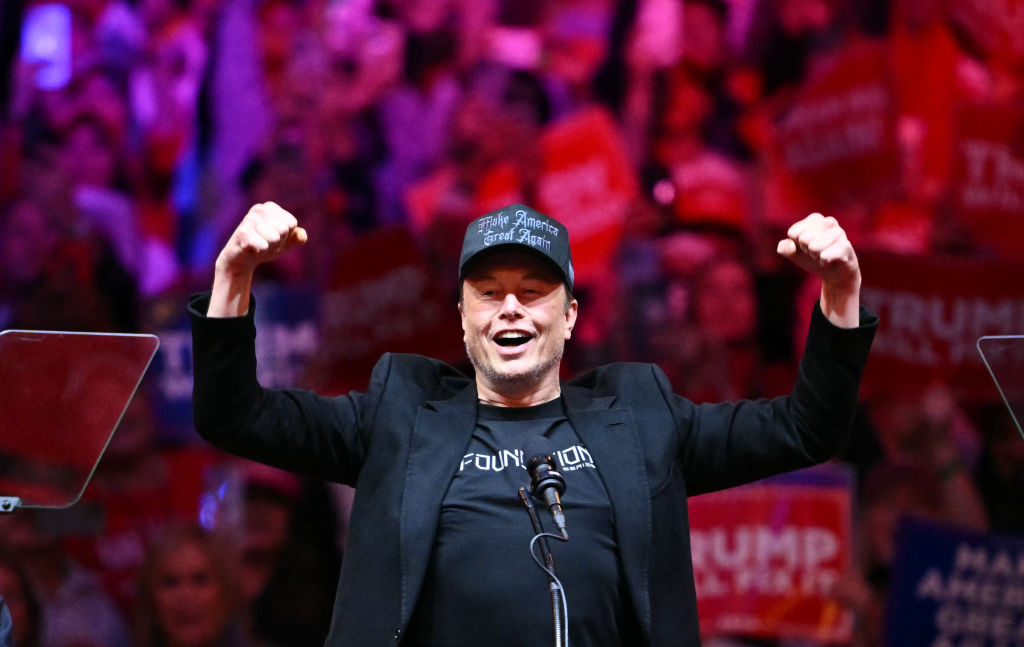There’s the coming “Trump shock” to British politics, which is well documented (if not well understood). But then there’s the “Musk shock” which is more opaque, though potentially even more seismic in its effect.
With a little over six weeks to go until Donald Trump returns to the White House, there is now fevered speculation in the UK about what the world’s richest man has in mind for British politics, with reports emerging about both his relationships with Tony Blair and Boris Johnson and the extent of his political support for Nigel Farage.
First, there emerged claims — albeit from his estranged, eccentric father — that Musk was preparing to donate $100 million to Reform UK to turbocharge Farage’s assault on the premiership over the next four years. Though the Reform leader has himself dismissed the claim as unlikely to be true, the importance of the story lies less in whether it eventually comes to pass and more in what it says about the fragile nature of British politics today.
Seasoned British political strategists, once sceptical of Reform’s potential, now believe that a significant donation of this kind could be a “game changer” for Farage’s party, allowing it to be competitive with both the Conservatives and Labour at the next election. One influential strategist told me they now believe it is possible that Farage could emerge in 2029 as Prime Minister, with the Conservative Party itself so hollowed out and ineffective that a well-funded takeover campaign could succeed, leading to a merger of the conservative Right after the next election.
Yet, the truth is Musk does not have to give Reform $100 million for his influence to be felt in British politics. Through his ownership of X he has already shown a willingness to challenge the Labour government in ways that are proving unsettling for those close to Starmer. For British statecraft, in fact, the very presence of Musk in the Trump administration, presents a daunting diplomatic challenge it has not faced before, in which the interests of politics, commerce, industry and technology come together in the figure of one transformative individual.
And that is where Tony Blair, in particular, comes in. The Financial Times reports that the former prime minister has met and spoken with Musk on a number of calls. Blair also called the SpaceX CEO “an extraordinary innovator”. Though Boris Johnson has also tried to gain influence with Musk, he is not taken seriously in Trump world and has little to offer commercially or politically. Blair on the other hand has built a business empire whose entire raison d’etre is to connect political and economic power, blurring the lines between commercial and philanthropic interests as he does so. This could be Starmer’s route back into some sort of working relationship with the tech mogul.
The key figure in the Tony Blair Institute — other than Blair — is its chief donor: the world’s third richest man and chief shareholder at Oracle, Larry Ellison. Since 2019, the Silicon Valley magnate has donated tens of millions of dollars every year to the TBI bringing his technological knowhow and resources to Blair; and Blair’s global political contacts to Oracle. Ellison is also a major shareholder — and one-time board member — at Tesla.
Blair today operates in a different stratosphere to any other British politician, gliding between the worlds of Silicon Valley and the Middle East, Singapore and Jerusalem. New Labour grandee Peter Mandelson recently spoke of using every avenue available to the British state to advance the national interest in Washington after Trump takes over in January. Nigel Farage might be one character able to bridge these worlds, but the most influential character of them all is the man who has already held the premiership. Since leaving office in 2007, Tony Blair has never been more powerful.











Join the discussion
Join like minded readers that support our journalism by becoming a paid subscriber
To join the discussion in the comments, become a paid subscriber.
Join like minded readers that support our journalism, read unlimited articles and enjoy other subscriber-only benefits.
Subscribe